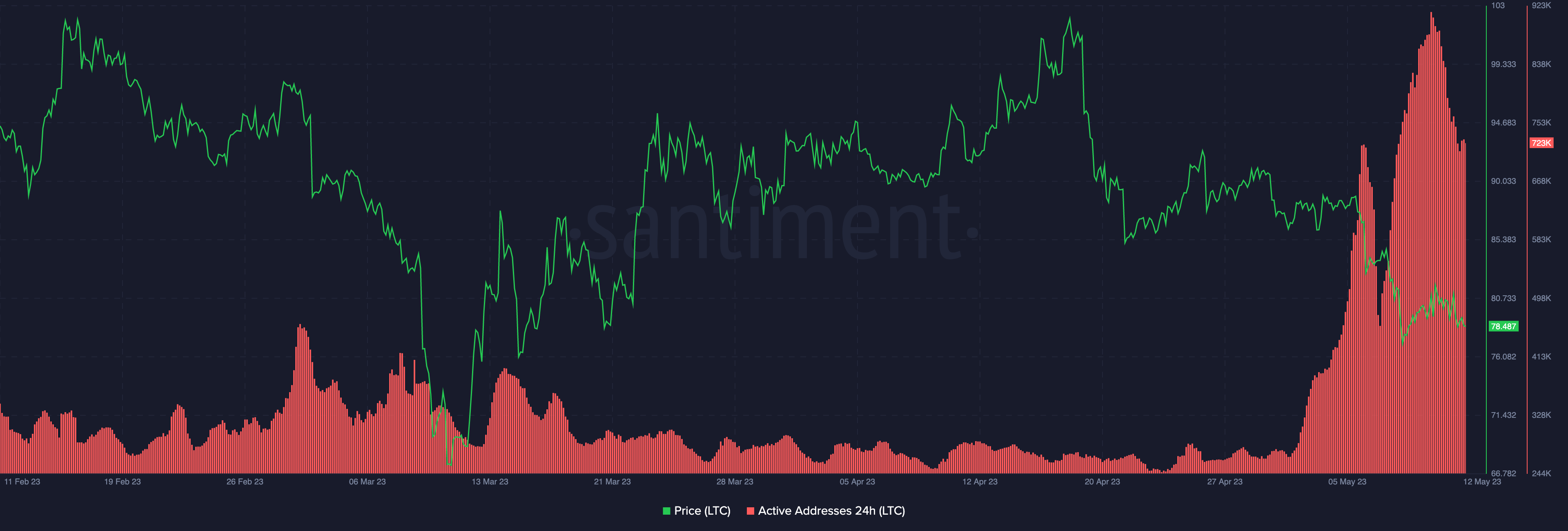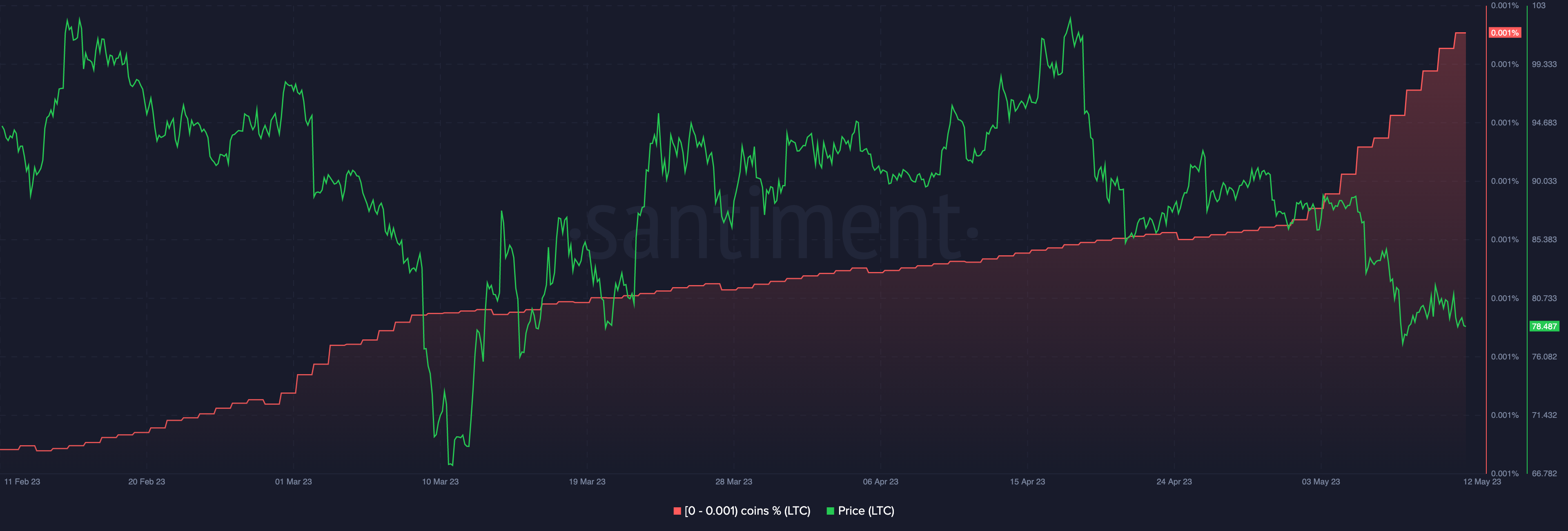Popular Bitcoin hard fork and one of the earliest cryptocurrencies, Litecoin (LTC), have recorded some interesting network activity in recent times. According to data from the on-chain analytics platform, Santiment, the number of daily active network addresses on Litecoin has increased by over 400,000 since the start of May.
However, Litecoin has only experienced a slight increase in its transaction volume during the same period, which is unusual considering the significant rise in its daily active addresses. Analyzing this network activity, Santiment released a detailed report on the factors behind such development.

LTC-20 Standard Drives Rise In Litecoin Micro Addresses
According to Santiment, the majority of new active addresses on Litecoin are the most miniature set of wallets on the network holding between 0-0.001 LTC. This explains the little increase in trading volume despite the rising number of daily addresses.
Behind this gain in micro wallets, Santiment postulates the recent introduction of the LTC-20 token standard to be the primary driving force. This is based on chart data which shows that this exciting rise in the 0-0.001 LTC wallets began after the launch of the LTC-20 standard on May 2.

According to its official Gitbook page, LTC-20 is referred to as an experimental standard for non-fungible tokens (NFTs).
While providing an introduction to this blockchain product, the page author stated;
“…this is an extremely dynamic experiment, and I strongly discourage any financial decisions to be made on the basis of its design. I do, however, encourage the Litecoin community to tinker with standard designs and optimizations until a general consensus on best practices is met.”
However, while LTC-20 is in its testing phase, it has been the rave of the Litecoin community in the last two weeks. This is mainly because it is based on the Bitcoin BRC-20 standard, allowing users to create “worthless” fungible tokens using the ordinal theory.
The BRC-20 token standard has proven to be quite successful since its launch two months ago, accumulating a market cap of over $660 million from then to date. That said, both the BRC-20 and LTC-20 tokens are NFT-like assets, albeit fungible, which inscribe data such as text, images and video on a blockchain.
LTC-20 Yet To Affect LTC’s Price
Although LTC-20 has brought about an increase in the daily active address as well as transaction counts on the Litecoin network, it is yet to elicit a similar positive effect on the price of LTC.
Based on data from Coingecko, Litecoin has declined by 8.4% and 10.7% in the last seven and 14 days, respectively. The token has gained by 14.8% on its year-to-date value but is down by a staggering 80.43% from its all-time high value of $410.26.
At the time of writing, LTC is trading at $80.51, having gone up by 1.8% in the last 24 hours. The token’s daily trading volume has also gained by 7.11% to attain a value of $417.43 million.
That said, Litecoin remains the 14th biggest cryptocurrency in the world, with a total market cap of $5.88 billion.








